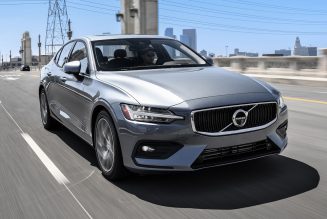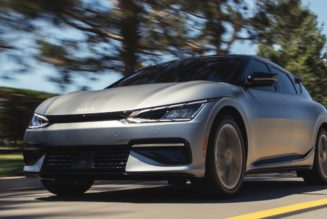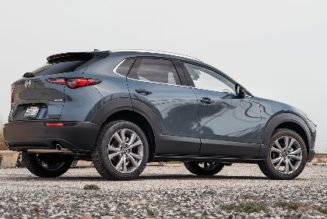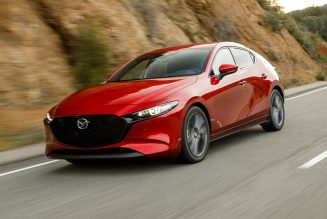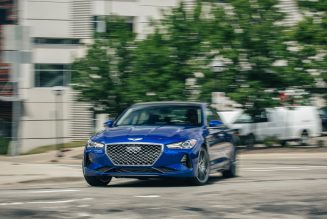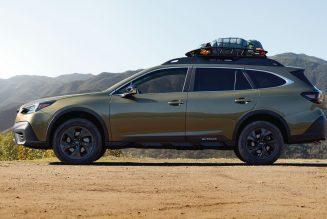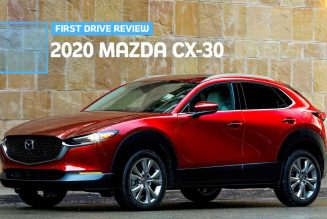It’s a pretty poorly kept secret that one of the most frequent uses for long-term vehicles in the MotorTrend Garage is in support of the comparison tests and reviews of other cars, trucks, and SUVs. Sometimes that means our long-termer is the star of a comparison; other times it means our long-termer is serving as a test or photo support vehicle—something our long-term 2020 Mazda CX-30 Premium AWD has been doing a lot of recently.
I know what you’re wondering—how is this relevant to you? Well, if you’re a car enthusiast, I think you might want to perk up for a bit. The duty cycle our photographers put our vehicles through is often very similar to what enthusiasts might do with their car, if for one reason or another they have just one car at home. To be a good support vehicle—or a single vehicle—a car has to do a lot of different things well.
The ideal support vehicle is roomy enough to hold lots of photography equipment and cleaning gear while also allowing the photographers to shoot out of the sides or back. It has to handle well and be fast enough to keep up with super and sports cars driven at 7/10ths. It has to ride well and provide a stable platform for photographers shooting out of windows and tailgates. Basically, the ideal photo support vehicle has to be a jack and master of all trades. It’s no wonder some of our photographers’ favorites include the vans like the Chrysler Pacifica and Honda Odyssey, SUVs like the Mazda CX-9, Mercedes-Benz GLE-Class, and Porsche Cayenne, and pickups like the Ram 1500 or Ford F-150 Raptor.
So how’s our CX-30 hold up to photo duty? Here’s what photographer Brandon Lim had to say:
CX-30 Engine and Transmission
Power from the CX-30’s 186-hp 2.5-liter I-4 feels adequate for daily driving and isn’t an issue for on-ramp merging or passing, but a turbo application would suit this drivetrain better. It feels wrong winding out the engine to enter every on-ramp, and the buzz at the top of the rev range make the car feel cheaper than it looks.
The Mazda’s six-speed automatic transmission frequently gets in the way; it’s frustrating how out of date the tuning feels. Sport mode just enhances all of my frustrations. It’s always a gear too low or too late. It hangs onto some gears for dear life, leaving you with a sensitive and buzzy throttle pedal. And sometimes it denies a downshift, letting a gap in the road you wanted to merge into disappear.
CX-30 Utility
When hauling photo gear in the CX-30, I have to be methodical and calculated about how I arrange gear so it all fits. Usually in similar cars of this size like a Subaru Crosstrek, I just stack Pelican case on Pelican case, but the Mazda’s sloping rear roofline and narrow trunk make it claustrophobic. I may be a master stacker in Tetris, but there’s no benefit in having a hatch that doesn’t suit my gear needs. Shooting car-to-car out of the trunk without anywhere to stash gear? Forget about it.
Oftentimes we need to turn around or park on small dirt shoulders when shooting. Despite being an SUV, the CX-30 makes me hesitant to do so. I was surprised when I heard the bottom plastic under tray guard scrape on a 6-inch divot in a gravel turnout I frequent. Embarrassing and disappointing for both me and the car. For that reason, it never left the asphalt again.
CX-30 Ride and Handling
Steering in the Mazda 3 lineup has always felt like it uses rubber bands; these vehicles offer a little more feel than other cars in the segment, but it feels like a simulator fitted with rubber belts. I find the CX-30’s ride to be pretty refined for its small size. As I was driving around downtown Los Angeles, I wasn’t bothered much by the bumpy roads, and midcorner bumps didn’t unsettle the Mazda as other vehicles can.
For a lifted hatchback, I expected it to be a perfect support vehicle, but time after time I was reminded of its shortcomings rather than its convenience.



